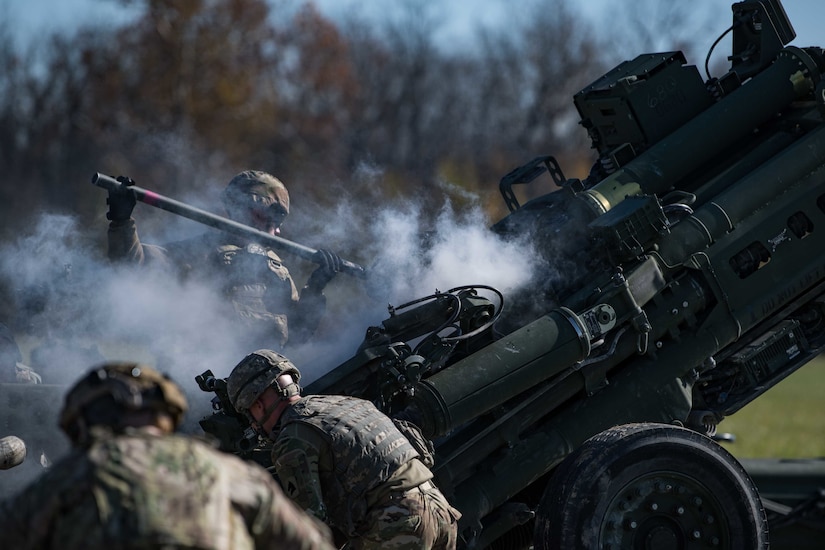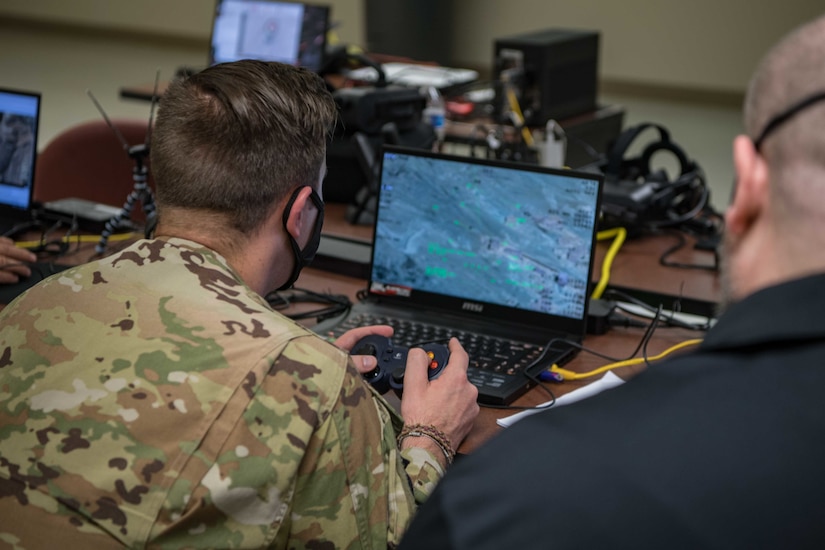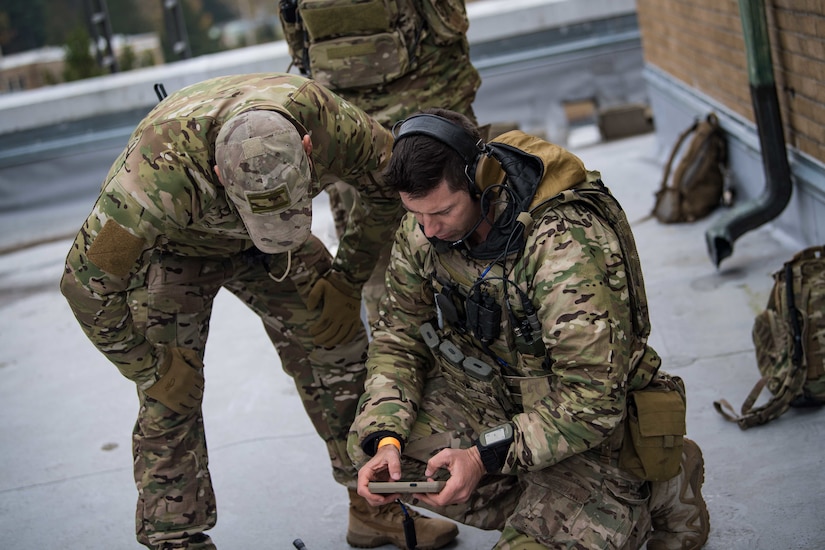Despite coronavirus, the Joint Staff's Bold Quest event at Camp Atterbury, Indiana, allowed the services and partners to demonstrate and assess U.S. and coalition interoperability.
The event concluded Nov. 4.

The event involved roughly 600 people — 400 in Indiana and roughly 200 attending virtually, said John Finch, the deputy demonstration branch chief with the Joint Staff's J-6 directorate. Finch works with the Joint Fires Integration Division in the Deputy Directorate for C4Cyber Integration.
"We're all about coalition interoperability in the kind of joint and combined fires and sensor-to-shooter interoperability," Finch said in a telephone interview.
Bold Quest is an annual event that allows participants to assess systems and capabilities in a realistic operational environment.
At Camp Atterbury, Bold Quest assessed the way the U.S. services could work together and integrate different systems, as well as adding the capabilities of partner and allied nations, Finch said.
All of the capabilities in the demonstration work well in the laboratory, but Bold Quest tests to see if they will make the transition to the field. It is one thing for a system to work in a temperature-controlled lab, it is quite another to see if it works in a rainstorm or hurricane.

"Underneath that general heading, there are specific objectives that are determined by the priorities and the requirements that the services or the partner nations have at any given time," he said. "Some of what we did in this event … was integration of some of those areas to look at interoperability and movement of data and information across that sensor-to-shooter chain."
This means the integration of close-air support, tube artillery, rocket artillery, naval gunfire and more. It means combining intelligence from an observer with binoculars to unmanned aerial vehicles to manned platforms to satellites and more.
All these objectives were integrated to look at a broader picture of the interoperability across different processes related to joint fires, Finch said.
The services and international partners went to Indiana to assess their systems and the tactics, techniques and procedures that go with them. Bold Quest gave them the data needed to make decisions about what changes or improvements need to be made, Finch said.

The 400 participants at Camp Atterbury were scattered in different locations and buildings. The 2nd Battalion 150th Field Artillery of the Indiana National Guard provided the guns and fired more than 100 rounds over two days in support of Bold Quest.
COVID-19 severely limited international travel, but many international partners were able to take advantage of the distributed aspects of the event, Finch said.
There were six partner nations: Canada, Finland, France, the Netherlands, Norway and Sweden.
Finch hopes Bold Quest 2021 will allow partner nations to participate in person. His team is already planning what will occur at Camp Atterbury next year.








No comments:
Post a Comment